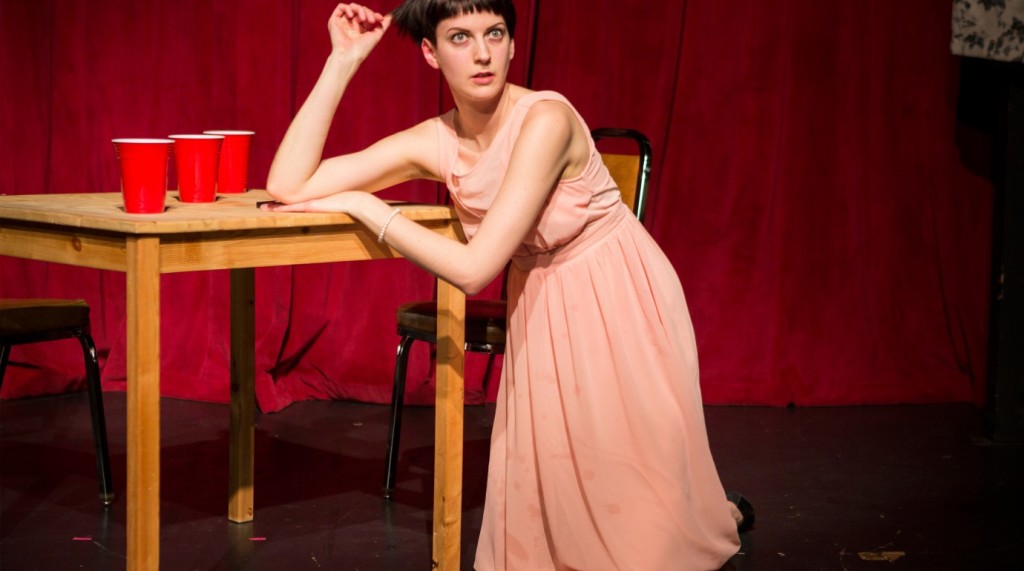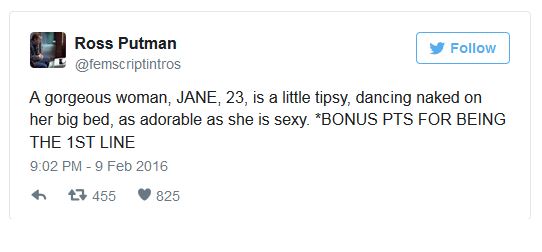available for purchase
at this time.
Link Roundup! – 2/12/16
Link Roundups feature articles and bits of internet goodness that our dramaturgy team digs up. If you find something you want to send our way, drop us a line on Facebook or Twitter!
♦♦♦♦♦
American Theatre has a feature on the ongoing copyright dispute surrounding the performance piece That’swhatshesaid in Seattle:
That’swhatshesaid, performed for a four-night run last week in a 50-seat venue at Gay City Arts in Seattle, is a new work inspired by a growing frustration with the role of women in theatre, and constructed from the words of leading playwrights. Three young queer artists—director Hatlo, playwright Courtney Meaker, and creator/performer Erin Pike—worked for two years to make it. In setting out to draw attention to the ways in which women’s voices are rendered and their bodies presented onstage, they took pieces of dialogue and stage directions from the 11 plays listed by American Theatre as the most-produced plays of the 2014-2015 season. The Whipping Man was on the list, as were David Ives’s Venus in Fur, Christopher Durang’s Vanya and Sonia and Masha and Spike, Nina Raine’s Tribes, and Joshua Harmon’s Bad Jews. Of the 11 plays, only 2 were by women (the other was Amy Herzog’s 4000 Miles).
♦♦♦♦♦
An essay on Vox explores the inequalities faced by artists of color in the acting industry:
I write a note to my Facebook friends condemning a theater culture that would let this happen. I explain that these sorts of racially charged interactions happen regularly and that they have, multiple times, almost made me quit the business. I juxtapose the difficulty of getting cast in theater due to my color, since the canon historically ignores minorities, with the knowledge that when we do get cast, these are the types of situations we find ourselves in. I finish by remarking that my career will probably be hurt more for speaking out against this culture than that white actor’s career will be hurt for calling me “nigger” on stage.
♦♦♦♦♦

Christian Bale in a scene from “The Big Short.” Credit Jaap Buitendijk/Paramount Pictures, via Associated Press
The New York Times reports on the growing interest in art focusing on the 2008 economic collapse and the country’s growing income disparity:
“You can see what’s happening in the political process — both parties are dealing with grass-roots movements standing up against the shrinking of the middle class and the rise of income inequality,” Mr. Amato said. “Audiences are not only ready to take that on in television and movies, they very much want to understand how we came to this point.”
♦♦♦♦♦
NPR features the filmmaker whose Twitter account, which highlights the descriptions of female characters in the scripts he reads, has gone viral:
So three months ago, at his wife’s suggestion, Putman began compiling female character intros. On Tuesday, he posted some of them to his Twitter account, with the handle “Fem Script Intros.”
By Thursday afternoon, he had tweeted 26 times and had already amassed nearly 45,000 followers. Putman says he is protecting script writers by changing all of the characters’ names to JANE in his tweets, also symbolizing how female characters and women in Hollywood are often treated as interchangeable.

